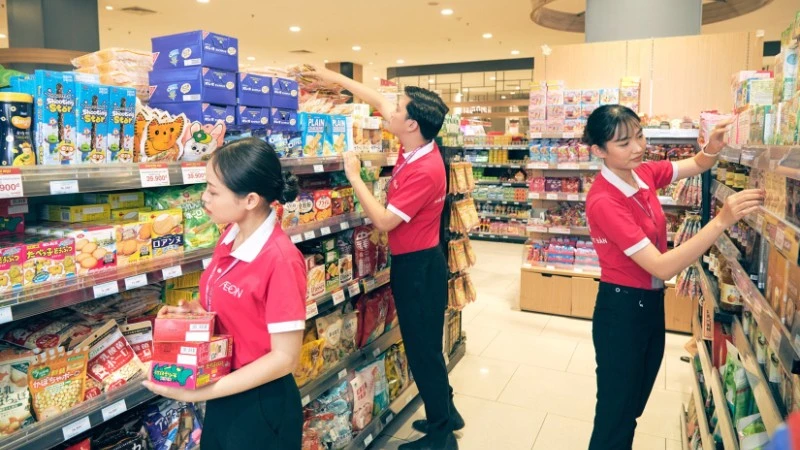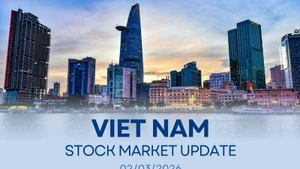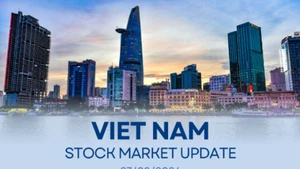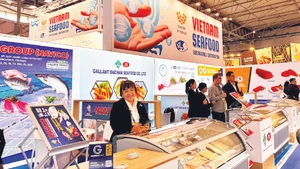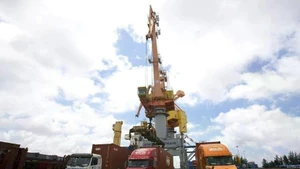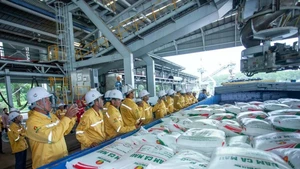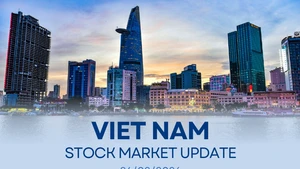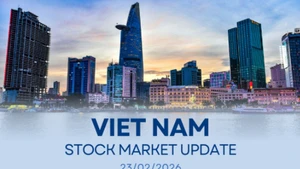A three-pillar human resources approach
The retail sector is experiencing strong growth, leading to high demand for skilled labour. According to the Ministry of Industry and Trade, during 2024–2025 the retail sector has maintained an annual growth rate of 9–10%.
With a large workforce and direct daily interaction with customers, the retail sector requires employees who are not only professionally competent but also flexible, quick to adapt and persistent.
Customer behaviour changes constantly, market needs shift every day, and businesses must innovate and respond quickly. In an increasingly competitive environment, attracting and retaining talent—from operations staff to mid- and senior-level managers—has become a critical priority for retailers.
The rapid and extensive expansion of modern distribution systems, along with changing consumer habits and growing competitive pressures, has created an urgent need for high-quality human resources.
Retail businesses must maintain a workforce capable of continuous operations, direct customer interaction and quick adaptation to market changes. This is why human resource management has become a greater priority across the industry, from skills training to establishing long-term career development pathways.
As the first retail enterprise in the industry to be listed among the Top 10 Best Places to Work in Viet Nam as announced by Anphabe, AEON Viet Nam is implementing a three-pillar human resources development model, comprising the Human Resources Business Partner (HRBP) team, the Skill Development department and the AEON Academy. This model aims to provide a foundation for employees to take greater initiative in their career paths, rather than simply attending isolated skills-based courses.
The company is also strengthening a culture of learning through internal training systems and financial support for external study programmes such as MBAs, foreign languages or professional skills. This approach is being widely adopted by large retail enterprises to attract and retain talent amid increasingly fierce competition in the labour market.
Encouraging autonomous thinking in the workplace
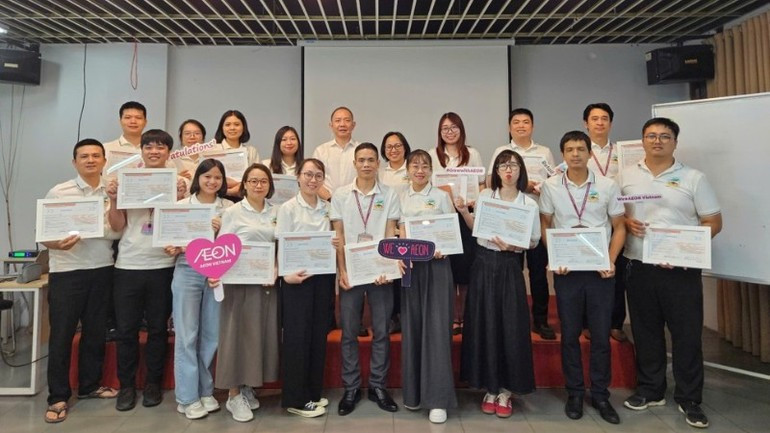
Businesses identify people as the key factor in realising business strategies; accordingly, human resources strategy must be aligned with overall development strategy.
AEON has positioned Viet Nam as a strategic core market alongside Japan, with a target of tripling its current business scale by 2030.
This expansion strategy not only promotes growth but also creates numerous promotion opportunities for internal staff, while opening a wide range of career prospects for external candidates.
Under the strategic positioning of being a “Sustainable Workplace”, AEON Viet Nam focuses on the pillar of “Sustainable Career Development” and on building a “Sustainable Working Culture” for all employees. One highlighted practice is promoting a coaching culture, helping employees strengthen their ability to make independent decisions in real operational situations.
In retail, where demand fluctuates daily, empowering frontline staff is regarded as a key factor in improving service efficiency and enhancing customer experience.
Moreover, the presence of retail businesses among the top workplaces in Viet Nam is seen as a positive step for the entire sector in efforts to improve workforce quality.
As major retail corporations continue to expand, competition for human resources is expected to intensify, requiring businesses to invest more systematically in people development and internal culture.
